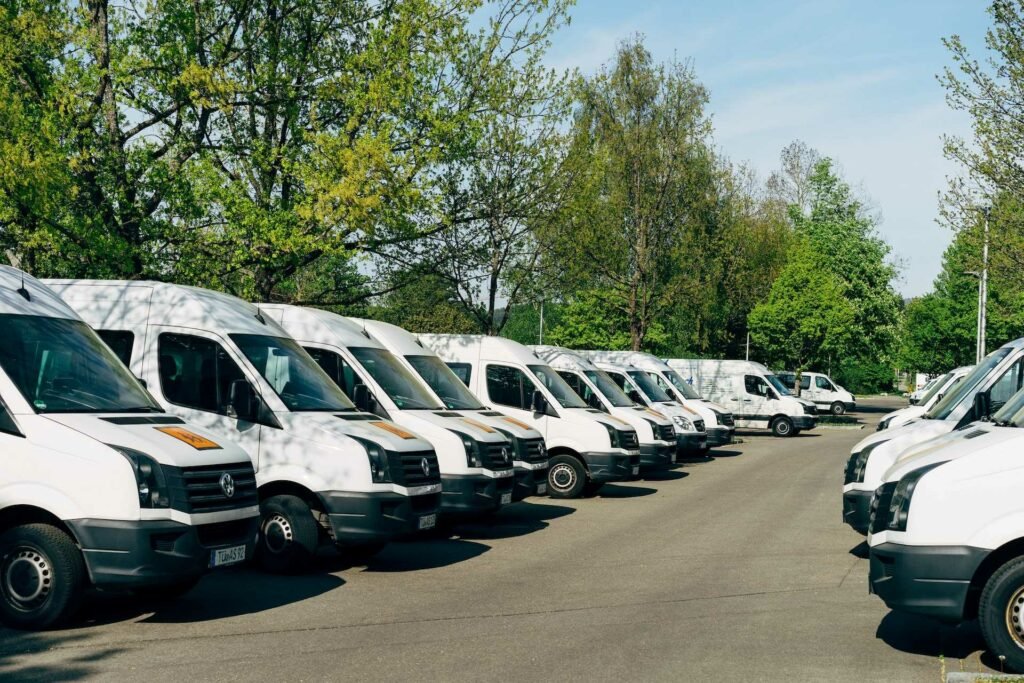
Any fleet manager who is not looking to reduce costs isn’t functioning to the best of their ability. Of course, it isn’t always easy to find ways to economise, especially when you have a large commercial fleet to manage and many competing demands on your attention. In this regard, technology can often simplify more complex issues, allowing fleet managers to make better-informed decisions about how to reduce operational costs. Among the most advanced approaches to bearing down on fleet management costs today is modern vehicle tracking. What is it and what commercial benefits can you expect from deploying it?
What Is Vehicle Tracking Technology?
Modern fleet vehicle tracking goes far beyond installing a GPS in each of your company vehicles so you can see where they might be at any particular time. Although this remains an important aspect of commercial fleet management, according to one leading operator in the field, Crystal Ball, modern tracking systems provide many more ways to help fleet managers. Thanks to cloud-based telematics, it is possible to view what drivers can see through dashcams, provide lone worker protections and plan routes so that they are operationally more effective. Typically, today’s generation of vehicle tracking technology is supplied on an app so managers can keep up to date from their workplace on a desktop or while they’re out and about using a mobile device. This degree of flexibility from kit that is relatively simple to install into vehicles often makes the investment worthwhile in spite of the other cost-based advantages.
How Does Vehicle Tracking Technology Save Businesses Money?
1. Fuel Consumption
To begin with, you can soon see which drivers are using more fuel than others when modern vehicle tracking technology is fitted. In some cases, you might need to have a quiet word with a driver so they adjust their habits. In other cases, such as delivery routes that require steep hills to be climbed, increased fuel consumption may be justified. Importantly, this tech allows managers to understand how and why fuel is being used and, even better, where to allow drivers to refuel so that costs are minimised.
2. Route Optimisation
With contemporary vehicle tracking, planning routes for cost-effective fuel stops is just one way to save money. By planning routes more efficiently and being able to react in real time to traffic updates, you can save time as well as fuel. In turn, this helps to bear down on labour costs and any financial penalties associated with late deliveries, for example.
3. Maintenance Scheduling
All vehicles need to be serviced and maintained. However, if you leave this to an annual check-up and MOT, then you could be throwing money away. Instead, a smart tracking system will inform you of problems, especially cost-related ones that might impact on a vehicle’s fuel efficiency, for instance. By keeping up-to-date with maintenance issues, you can nip problems in the bud and ensure your fleet is never without too many vehicles off the road at the same time.
4. Fleet Safety
Fleet safety is about keeping your drivers and other employees safe and secure whether they’re on the road or helping to load and unload goods. Of course, being safe and conscientious is also about protecting other road users. With safer vehicles, you are less likely to face incidents on the road, ones that could cost you down the line if you have to claim due to increased insurance premiums.
5. Compliance with Regulatory Standards
If you are not tracking your fleet, then you won’t be able to tell whether or not your drivers are complying with the rules of the road. Nor will you know for sure whether vehicles have entered ULEZ or other restricted access zones. Regulatory standards concerning working time directives also need to be met and without proper data, it is hard to justify whether employers have taken their responsibilities seriously. If you’re found not to have complied, then legal action could be taken and, in the end, fines issued. These outcomes are avoidable with modern fleet tracking technologies.
Advanced Technologies in Modern Vehicle Tracking
Thanks to 4G data networks. Real-time data analysis from a fleet tracking system is possible in nearly every corner of the country. Even when coverage drops out here and there, such systems should be able to send data updates as soon as they re-enter a location with 4G wireless coverage. Many of the dashcams installed with fleet tracking systems also offer high-quality high-definition images. It is also possible to see what is going on when goods are unloaded, not to mention whether drivers are sticking to their optimised route plans. Furthermore, with modern telemetry, predictive maintenance alerts can be issued to your operational hub so that quick fixes and ongoing in-house maintenance can be carried out on a timely basis to minimise the amount of time vehicles spend at the mechanics.
Efficient Fleet Vehicle Tracking – The Bottom Line
Given the costs of today’s fleet tracking technology and the ongoing operational cost savings they invariably lead to, the return on investment fleet managers can expect is often attractive. Nevertheless, it is perhaps the peace of mind and freeing up of time for other tasks that also makes it such an attractive proposition, as well.
